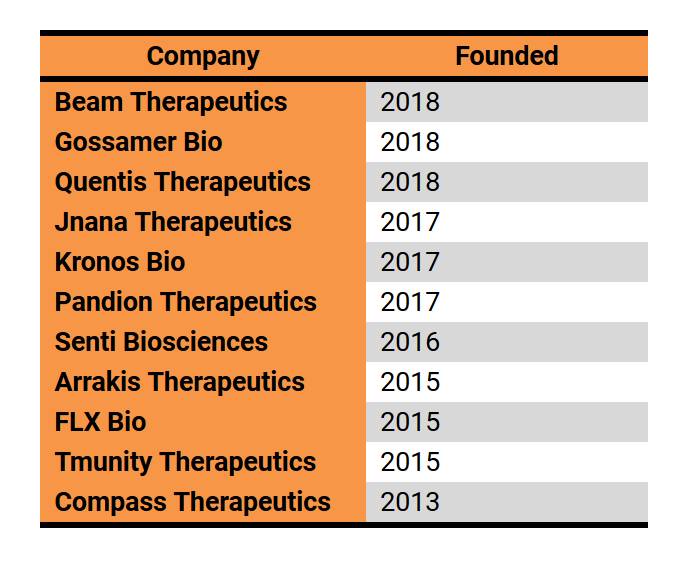On October 8, 2018 Inovio Pharmaceuticals, Inc. (NASDAQ:INO) reported the successful animal testing of DNA-encoded monoclonal antibodies targeting the immune checkpoint molecule CTLA-4 as published in Cancer Research (Press release, Inovio, OCT 8, 2018, View Source;Monoclonal-Antibody-dMAb-Checkpoint-Inhibitor–and-Demonstrates-Tumor-Shrinkage-in-Preclinical-Studies/default.aspx [SID1234530270]). The breakthrough preclinical study demonstrated that highly optimized dMAbs targeting mouse CTLA-4 protein can be robustly expressed in vivo, and shrank tumors in mice. More importantly, Inovio’s dMAb constructs for anti-human CTLA-4 antibodies ipilimumab (YERVOY) and tremelimumab, achieved high expression levels in mice (approximately 85µg/ml and 58µg/ml, respectively). These dMAbs exhibited long-term expression with maintenance of serum levels >15µg/ml for over a year.
Schedule your 30 min Free 1stOncology Demo!
Discover why more than 1,500 members use 1stOncology™ to excel in:
Early/Late Stage Pipeline Development - Target Scouting - Clinical Biomarkers - Indication Selection & Expansion - BD&L Contacts - Conference Reports - Combinatorial Drug Settings - Companion Diagnostics - Drug Repositioning - First-in-class Analysis - Competitive Analysis - Deals & Licensing
Schedule Your 30 min Free Demo!
This research publication is significant because it is the first to report on the use of Inovio dMAb technology to develop novel monoclonal antibody-based therapies targeting checkpoint inhibitors. Inovio is developing additional dMAbs targeting other checkpoint molecules including PD-1. When delivered directly into the body, the genetic instructions provided from the dMAb construct enable the patient’s own cells to become the factory which manufactures the therapeutic monoclonal antibody products. Inovio has previously published several papers demonstrating its dMAb product candidate’s ability to treat multiple virus targets such as flu, dengue, chikungunya, and HIV.
Laurent Humeau, Ph.D., Inovio’s Senior Vice President, Research & Development, said, "Even though conventional monoclonal antibodies represent one of the most successful segments of the biotechnology market, accounting for over $50 billion in sales today, manufacturing complexity and repeated dosing may limit a broader use of this technology. Inovio’s dMAb products may improve upon this class using our synthetic design and in vivo production. This newly published study further support that Inovio’s potent dMAb platform can be expanded to target cancer. We plan on advancing the first clinical dMAb candidate into the first-in-human study in 2019. Moreover, we expect to form partnerships to advance several dMAb products targeting cancers and infectious diseases."
David B. Weiner, Ph.D., the paper’s senior author and the W.W. Smith Charitable Trust Professor in Cancer Research at The Wistar Institute, said, "Our work provides the first demonstration that we can use synthetic DNA technology to produce checkpoint inhibitor molecules in vivo to impact tumor growth in a preclinical setting. We showed that dMAbs may represent a valuable addition to the cancer immunotherapy toolbox: In our preclinical studies, dMAbs achieved antitumor activity comparable to that of traditional monoclonal antibodies, while being delivered through a simpler formulation that may provide a bridge to expand target populations for checkpoint inhibitors."
The study highlights that delivery of a synthetic, sequence-optimized DNA plasmid designed to encode anti-mouse CTLA-4 monoclonal antibodies, with the aid of an electroporation device to enhance uptake, resulted in significant and prolonged antibody expression with even a single dose. Importantly, this approach stimulated robust CD8+ T cell infiltration, achieving tumor clearance across multiple mouse tumor models. The researchers then went on to develop human checkpoint inhibitor molecules and demonstrated their production in mice and their ability to stimulate human T cell responses associated with antitumor activity. The study clearly demonstrates how optimized dMAbs encoding the human CPI’s ipilimumab and tremelimumab are potently expressed in vivo and enhance the activation of human effector T cells with the potential to destroy tumors. This strategy provides a novel approach to immune checkpoint therapy, with the potential to expand patient access to this breakthrough immunotherapy to treat cancer.
Funded with over $60 million in R&D support from top agencies like DARPA, NIH, and the Gates Foundation, Inovio dMAb products could extend the medical benefits that marketed monoclonal antibodies have already achieved, and even potentially address diseases that conventional monoclonal antibodies cannot.
About Inovio’s DNA-based Monoclonal Antibody Platform
Traditional monoclonal antibodies are manufactured outside the body in bioreactors, typically requiring costly large-scale manufacturing facility development and laborious production. Inovio’s disruptive dMAb technology has the potential to overcome these limitations by virtue of their simplified design, rapidity of development, product stability, ease of manufacturing and deplorability, and cost effectiveness, thereby providing potential new avenues for treating a range of diseases. Another significant advancement seen in Inovio dMAb technologies is that the optimized genes for a desired monoclonal antibody is encoded in a DNA plasmid, which is produced using very cost effective and highly scalable fermentation techniques. These plasmids are delivered directly into cells of the body using electroporation and the encoded monoclonal antibody is then directly produced by these cells. Previously published studies show that a single administration of a highly optimized DNA-based monoclonal antibody targeting HIV virus produced a high level of expression of the antibody in the bloodstream of mice; Inovio similarly reported data showing that dMAb products against flu, Ebola, chikungunya and dengue protected animals against lethal challenge. Inovio Ebola dMAb product is being developed under a grant from the Defense Advanced Research Projects Agency (DARPA).
